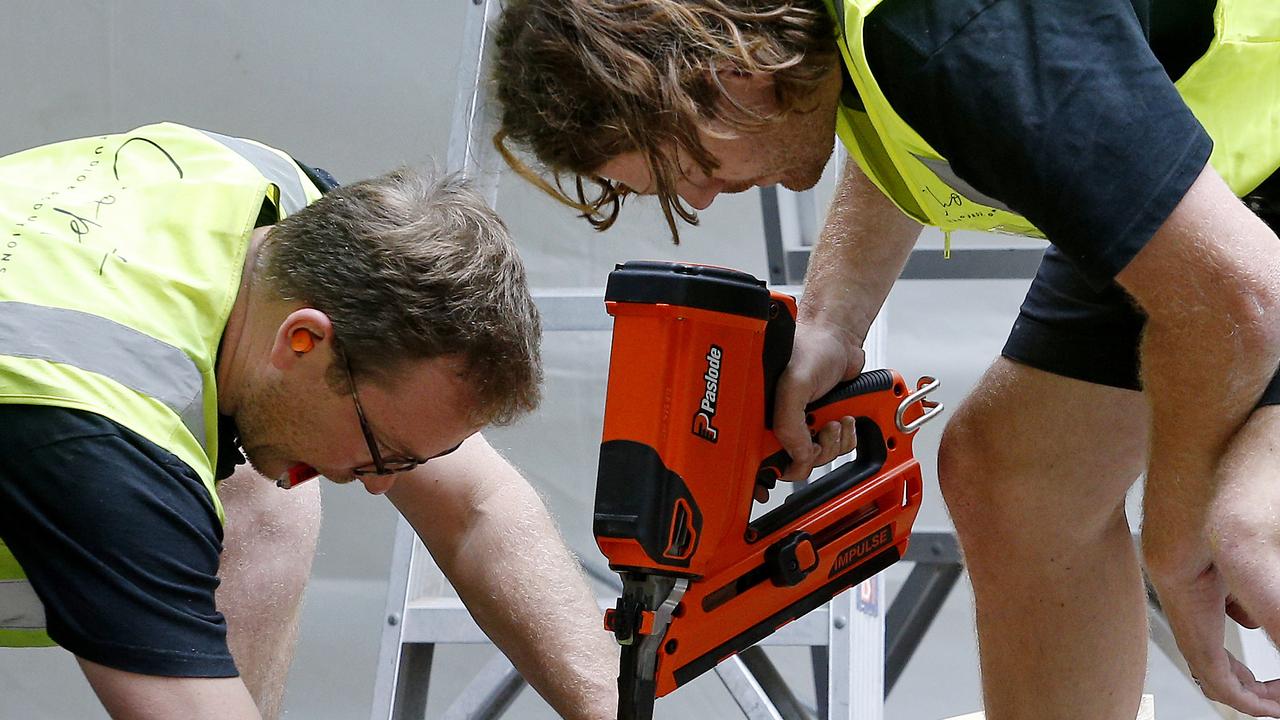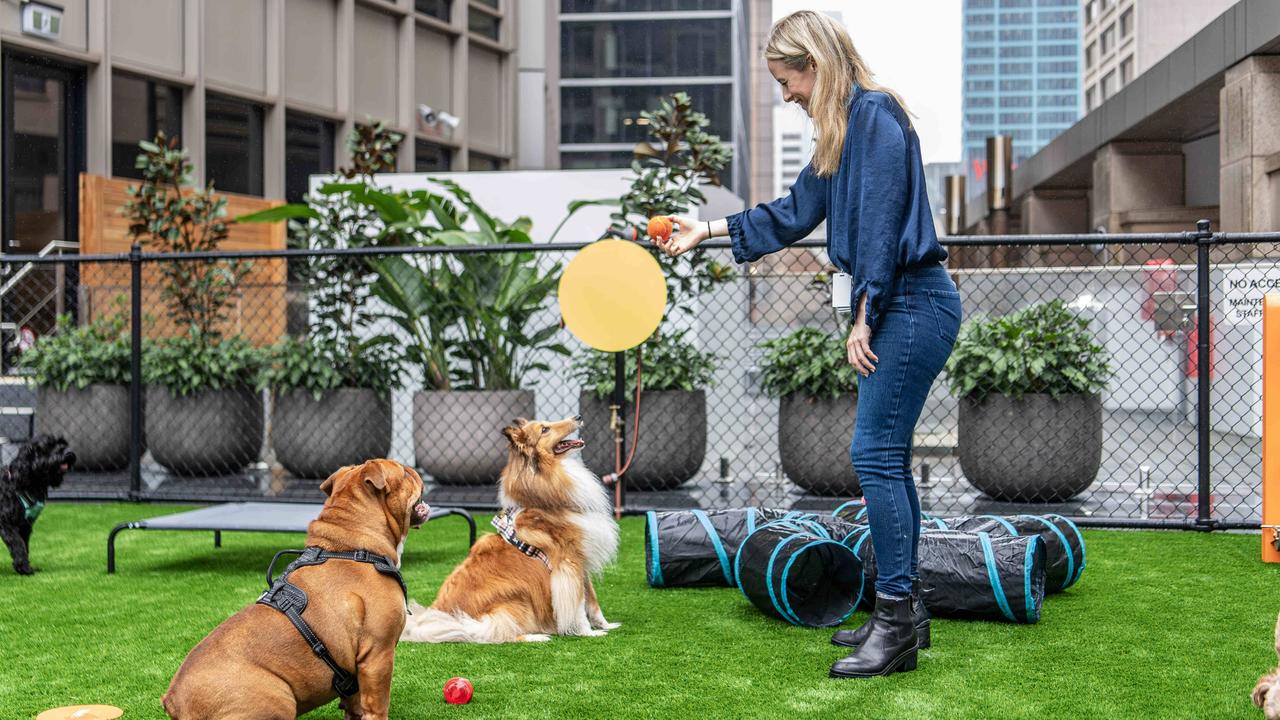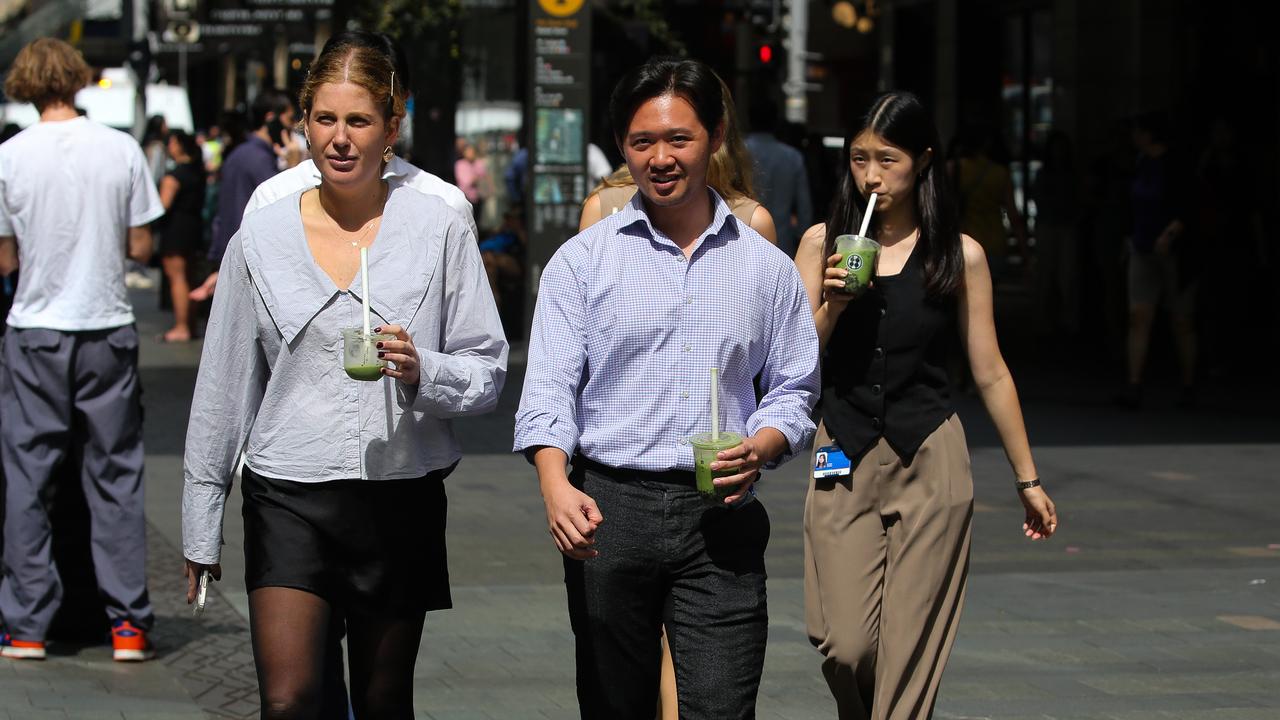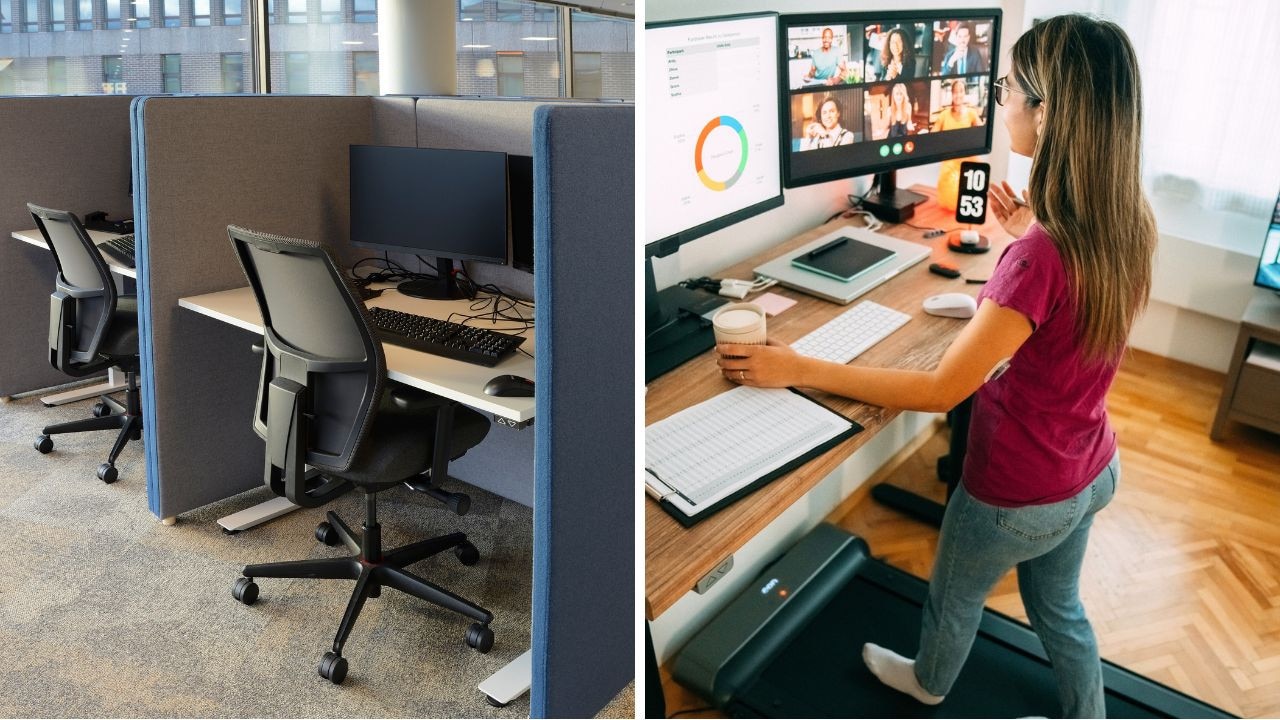50 job roles to go due to AI: Where 1.3m Aussies can get work and a pay rise
AI advances are speeding up disruption to the Australian job market. Here are the 50 roles likely to lose the most workers, and how to make a career change to stay employable into the future.

Careers
Don't miss out on the headlines from Careers. Followed categories will be added to My News.
More than 1.3 million workers could be displaced by 2027 as advances in artificial intelligence speed up automation.
But skill shortages in other parts of the workforce are creating opportunities for career changers.
New data analysis from Faethm by Pearson predicted almost 10 per cent of Australia’s working population may need to retrain within the next four years.
The research, commissioned by tech company ServiceNow, identified the tasks involved in 6000 different job types and used machine learning to analyse which were most susceptible to automation.
Bank workers topped the list, with 46 per cent of their workload forecast to be automated, potentially slashing headcounts.
Other workers in the firing line with more than a third of their workload swallowed up by automation included financial and insurance clerks, bookkeepers, checkout operators, data entry operators, telemarketers and legal secretaries.

But it’s not all bad news.
Pearson vice president of AI products Dr Richard George said it was up to employers how they responded to technological change.
“Automation doesn’t have to equal job losses,” Dr George said.
“(Employers could ask) ‘can we reposition this individual or individuals into other jobs that we’re hiring for?’”
The Pearson data analysis also showed opportunity for people worried about automation to make a career change, and potentially land a pay rise in the process.
For example, it calculated sales assistants (average salary $50,000-60,000) had a 91 per cent job fit to become childcare workers ($55,000-65,000); checkout operators/cashiers ($45,000-55,000) were a 78 per cent fit for customer service managers ($75,000-90,000); and store persons ($55,000-65,000) were a 68 per cent fit for school teachers ($90,000-100,000).
Career development practitioner Helen Green recommended anyone considering a new career start with a skill audit and list of achievements.
“Many people put off changing careers because they assume lengthy study will be required,” Ms Green, the director of Career Confident said.
“This is not necessarily true. A short course or microcredential is sometimes sufficient to help you change careers, especially when combined with work performance.”

ServiceNow technical consultant Teresa Ko moved into the IT sector last year after a career running contact centres and a restaurant.
She had taught herself to code but held no formal IT qualifications when she applied for a ServiceNow NexGen traineeship.
“For people like me who have met a career crossroad, all it takes is a passion and the right upskilling program to help you achieve your goal,” Ms Ko said.
“You don’t need to be a technical person, especially with automation and AI.”

The analysis predicted tens of thousands of workers would be specifically impacted by new generative AI technology, such as text tool ChatGPT and image creator Midjourney.
These included law clerks, graphic designers, science technicians and architectural draftspersons.
However, at this stage, Dr George said these jobs still required “a human in the loop”, meaning AI would make workers more productive rather than replace them.
“But going out beyond that five year view, maybe 10 or 15 years … you could potentially see (AI) taking over entire tasks and doing them for you,” he said.
AI was also creating new jobs, according to ServiceNow managing director Eric Swift.
“Australia needs approximately 370,000 more people working in tech to deploy AI and other technologies,” Mr Swift said.
“More people from a wider background will be able to do jobs that were previously only reserved for people with specialised technical skills.
“When anyone can now create software and applications with simple text inputs – which AI turns into code – it means we can supercharge innovation.”

50 MOST AUTOMATABLE JOBS – POTENTIAL JOB LOSSES BY 2027
Sales Assistant (General): 100,060 full time equivalent jobs lost (17% drop)
General Clerk: 56,087 jobs (20% drop)
Checkout Operator: 40,837 jobs (37% drop)
Accounts Clerk: 40,333 jobs (38% drop)
Storeperson: 40,049 jobs (23% drop)
Bookkeeper: 39,867 jobs (38% drop)
Retail Manager (General): 34,870 jobs (16% drop)
Accountant (General): 30,224 jobs (19% drop)
Medical Receptionist: 23,071 jobs (28% drop)
Bank Worker: 22,987 jobs (46% drop)
Receptionist (General): 22,903 jobs (27% drop)
Kitchenhand: 21,338 jobs (16% drop)
Shelf Filler: 19,829 jobs (27% drop)
Truck Driver (General): 16,785 jobs (9% drop)
Information Officer: 15,319 jobs (27% drop)
Personal Assistant: 14,945 jobs (28% drop)
Data Entry Operator: 14,261 jobs (35% drop)
Call Or Contact Centre Operator: 13,470 jobs (34% drop)
Pharmacy Sales Assistant: 13,290 jobs (32% drop)
Delivery Driver: 12,665 jobs (15% drop)
Finance Broker: 10,803 jobs (37% drop)
Fitter (General): 10,777 jobs (13% drop)
Waiter: 10,296 jobs (11% drop)
Insurance Consultant: 10,045 jobs (34% drop)
Payroll Clerk: 9242 jobs (30% drop)
Barista: 8449 jobs (16% drop)
Commercial Cleaner: 8082 jobs (5% drop)
Bar Attendant: 8077 jobs (17% drop)
Packers: 8070 jobs (19% drop)
Finance Manager: 8015 jobs (13% drop)
Fast Food Cook: 7989 jobs (13% drop)
ICT Customer Support Officer: 7671 jobs (15% drop)
Metal Fabricator: 7614 jobs (15% drop)
Secretary (General): 6945 jobs (25% drop)
Sales Representative (Personal And Household Goods): 6758 jobs (25% drop)
Bus Driver: 6637 jobs (15% drop)
Motor Vehicle Parts Interpreter: 6613 jobs (31% drop)
Dispatching And Receiving Clerk: 6609 jobs (21% drop)
Carpenter: 6600 jobs (6% drop)
Retail Supervisor: 6526 jobs (17% drop)
Financial Investment Adviser: 6356 jobs (22% drop)
Cafe Worker: 6190 jobs (13% drop)
Human Resource Adviser: 5897 jobs (18% drop)
Child Care Worker: 5803 jobs (4% drop)
Warehouse Administrator: 5655 jobs (23% drop)
Credit Or Loans Officer: 5628 jobs (15% drop)
Baker: 5491 jobs (25% drop)
Courier: 5421 jobs (16% drop)
Teachers’ Aide: 5418 jobs (7% drop)
Motor Mechanic (General): 5416 jobs (5% drop)
SOURCE: FAETHM BY PEARSON
More Coverage
Originally published as 50 job roles to go due to AI: Where 1.3m Aussies can get work and a pay rise








